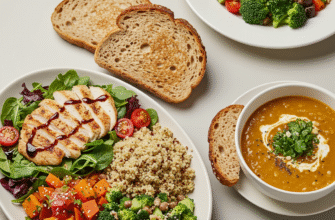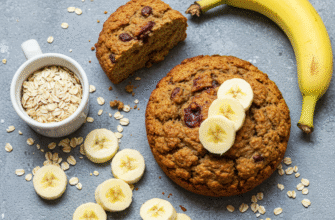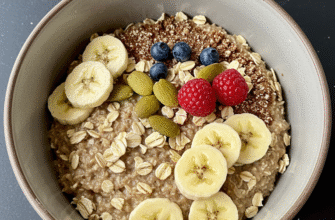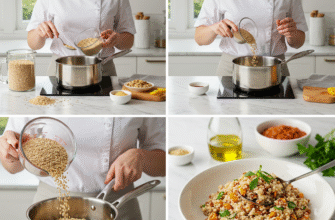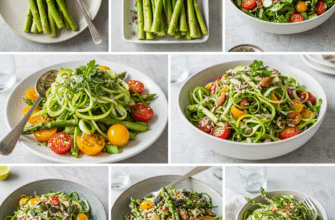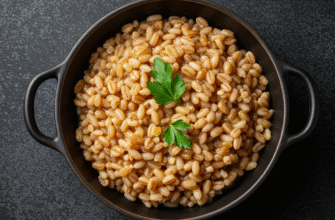Duck breast often gets pigeonholed as a restaurant-only treat, something decadent and perhaps a bit intimidating to tackle at home. While it certainly delivers a rich, satisfying flavor, preparing duck breast doesn’t have to mean a heavy meal. By focusing on flavorful marinades and smart cooking techniques, you can create incredibly delicious duck dishes that lean towards the lighter side, emphasizing taste over excessive fat.
Why bother marinating duck breast, especially if we’re aiming for leaner results? It’s all about maximizing flavor penetration and tenderizing the meat without relying solely on the fat cap. Duck meat, while tender, has a distinct flavor that pairs beautifully with a wide range of ingredients. A well-crafted marinade infuses the flesh with complementary tastes, creating layers of complexity. Furthermore, acids in marinades help to break down muscle fibers slightly, ensuring a tender bite even if you’re carefully rendering off most of the skin fat.
The Goal: Flavor Infusion, Not Fat Addition
When thinking about leaner duck preparations, the marinade’s role shifts slightly. Instead of using lots of oil as a carrier for flavor (as you might for leaner meats like chicken breast), we focus on potent, water-soluble, or acid-based ingredients. The natural richness of the duck itself means we can be more restrained with added fats in the marinade, letting the aromatics, spices, herbs, and acids take center stage.
The process of rendering the fat from the skin is key to a leaner final dish. Scoring the skin and starting the breast skin-side down in a cold pan allows the fat to melt away slowly and efficiently. A good marinade complements this process, ensuring the meat underneath remains moist and flavorful as the skin crisps up perfectly.
Building Blocks of a Leaner Duck Marinade
Crafting the perfect marinade involves balancing several key components:
- Acid: Essential for tenderizing and adding brightness. Think citrus juices (orange, lemon, lime), vinegars (balsamic, red wine, rice, apple cider), or even yogurt (though less common for classic duck preparations). Use acidic elements judiciously; too much for too long can make the meat mushy.
- Flavor Base & Aromatics: This is where the personality comes in. Garlic, ginger, shallots, scallions, herbs (thyme, rosemary, sage, cilantro, mint), spices (paprika, cumin, coriander, star anise, five-spice powder), chili (fresh, flakes, or paste), and zests pack a punch without adding fat.
- Umami/Salt: Crucial for enhancing overall flavor. Soy sauce, tamari, Worcestershire sauce, miso paste, fish sauce (use sparingly), or simply sea salt and freshly ground black pepper are vital.
- Sweetness (Optional but Recommended): A touch of sweetness balances the acid and umami and helps with caramelization during cooking. Honey, maple syrup, brown sugar, or fruit purees work well. Use sparingly to avoid burning, especially if grilling.
- Oil (Minimal): While aiming for leaner, a *tiny* amount of oil (like teaspoon, not tablespoons) can help distribute fat-soluble flavors and prevent sticking. Toasted sesame oil or a drizzle of olive oil can be used, but often, the rendering duck fat itself is sufficient during cooking.
Flavor Profile Ideas for Leaner Duck Breast Marinades
Let’s explore some specific combinations designed for flavor impact without heaviness. Remember to adjust quantities based on the amount of duck and your personal preference.
Citrus & Herb Marinade
This is bright, fresh, and classic. It cuts through the richness of the duck beautifully.
- Juice and zest of 1 orange
- Juice of half a lemon
- 2-3 cloves garlic, minced
- 1 tablespoon chopped fresh rosemary or thyme (or a mix)
- 1 teaspoon Dijon mustard
- 1/2 teaspoon sea salt
- 1/4 teaspoon black pepper
- Optional: 1 teaspoon olive oil
Method: Whisk ingredients together. Marinate duck breasts (skin scored) for 30 minutes to 2 hours.
Asian-Inspired Ginger-Soy Marinade
Offers a savory, slightly sweet profile with aromatic depth.
- 3 tablespoons low-sodium soy sauce or tamari
- 1 tablespoon rice vinegar
- 1 tablespoon grated fresh ginger
- 2 cloves garlic, minced
- 1 teaspoon sesame oil
- 1 teaspoon honey or maple syrup
- Pinch of red pepper flakes (optional)
- 1 scallion, thinly sliced (optional, add just before cooking)
Method: Combine all ingredients except scallion. Marinate duck breasts (skin scored) for 1 to 3 hours. Stir in scallion just before removing duck from marinade.
Fruity Balsamic Marinade
Tangy, slightly sweet, and sophisticated. Pairs wonderfully with duck.
- 3 tablespoons balsamic vinegar
- 1 tablespoon cherry or raspberry preserves (or puree)
- 1 clove garlic, minced
- 1/2 teaspoon dried oregano or thyme
- Pinch of salt and generous black pepper
- Optional: 1 teaspoon olive oil
Method: Whisk ingredients until well combined. Marinate duck breasts (skin scored) for 30 minutes to 1.5 hours. The sugars mean you need to watch carefully during searing to prevent burning.
Spiced Yogurt Marinade (Less Traditional, Indian-Inspired)
Yogurt tenderizes effectively and carries spices well. Creates a lovely crust.
- 3 tablespoons plain yogurt (not Greek)
- 1 tablespoon lemon juice
- 1 teaspoon grated fresh ginger
- 1 clove garlic, minced
- 1/2 teaspoon garam masala
- 1/2 teaspoon ground cumin
- 1/4 teaspoon turmeric
- Pinch of cayenne pepper (optional)
- 1/2 teaspoon salt
Method: Mix all ingredients. Coat duck breasts (skin scored) thoroughly. Marinate for 2 to 4 hours. Gently wipe off excess yogurt before searing to prevent burning, but leave a thin coating.
Tips for Success: Marinating and Cooking
Getting the most out of your marinade involves more than just mixing ingredients.
- Score the Skin: Before marinating, score the duck skin in a crosshatch pattern, cutting through the fat but not into the meat. This allows some marinade flavor to reach the meat edge and, more importantly, helps the fat render efficiently during cooking.
- Marinating Time: Duck breast is relatively tender, so it doesn’t need hours upon hours in a marinade, especially acidic ones. Generally, 30 minutes to 4 hours is sufficient. Over-marinating, particularly with strong acids, can negatively affect the texture.
- Container: Use a non-reactive container like a glass dish or a resealable plastic bag. Ensure the duck is well-coated.
- Refrigerate: Always marinate in the refrigerator for food safety.
- Pat Dry Before Cooking: This is crucial for achieving crispy skin. Remove the duck breast from the marinade and pat the skin thoroughly dry with paper towels. If you skip this step, the skin will steam rather than crisp. Discard the used marinade.
Safe Handling Reminder: Never reuse a marinade that has been in contact with raw meat. If you want to use some of the marinade flavors as a sauce, reserve a portion *before* adding the raw duck. Alternatively, boil the used marinade thoroughly for several minutes to kill any bacteria before considering it for sauce use, though creating a fresh sauce is often safer and tastes better. Always marinate raw poultry in the refrigerator.
Cooking for Leaner Results: The Cold Pan Sear
This technique is your best friend for leaner duck breast preparation.
Place the patted-dry, marinated duck breast skin-side down in a cold, oven-safe skillet. Turn the heat to medium or medium-low. As the pan heats up slowly, the scored skin will begin to render its fat without seizing up or burning quickly. Let it cook undisturbed for about 6-10 minutes (depending on size and fat thickness), pouring off the accumulating rendered fat periodically into a heatproof bowl. You’ll be amazed how much fat melts away!
Once the skin is deeply golden brown and crisp, flip the breast and sear the meat side for just a minute or two. You can then finish it in a preheated oven (around 400°F or 200°C) for a few minutes until it reaches your desired internal temperature (around 135°F or 57°C for medium-rare is popular). Remember to let the duck rest for 5-10 minutes before slicing. This allows the juices to redistribute, ensuring a tender and moist result.
Embrace Flavorful, Leaner Duck
Marinating duck breast is an excellent way to infuse it with vibrant flavors while facilitating a leaner cooking process. By focusing on acids, aromatics, and spices rather than excess oil, and by employing the cold pan rendering technique, you can enjoy this delicious protein without the heaviness often associated with it. Experiment with different flavor profiles, adjust ingredients to your liking, and rediscover how versatile and delightful duck breast can be in your home kitchen.


